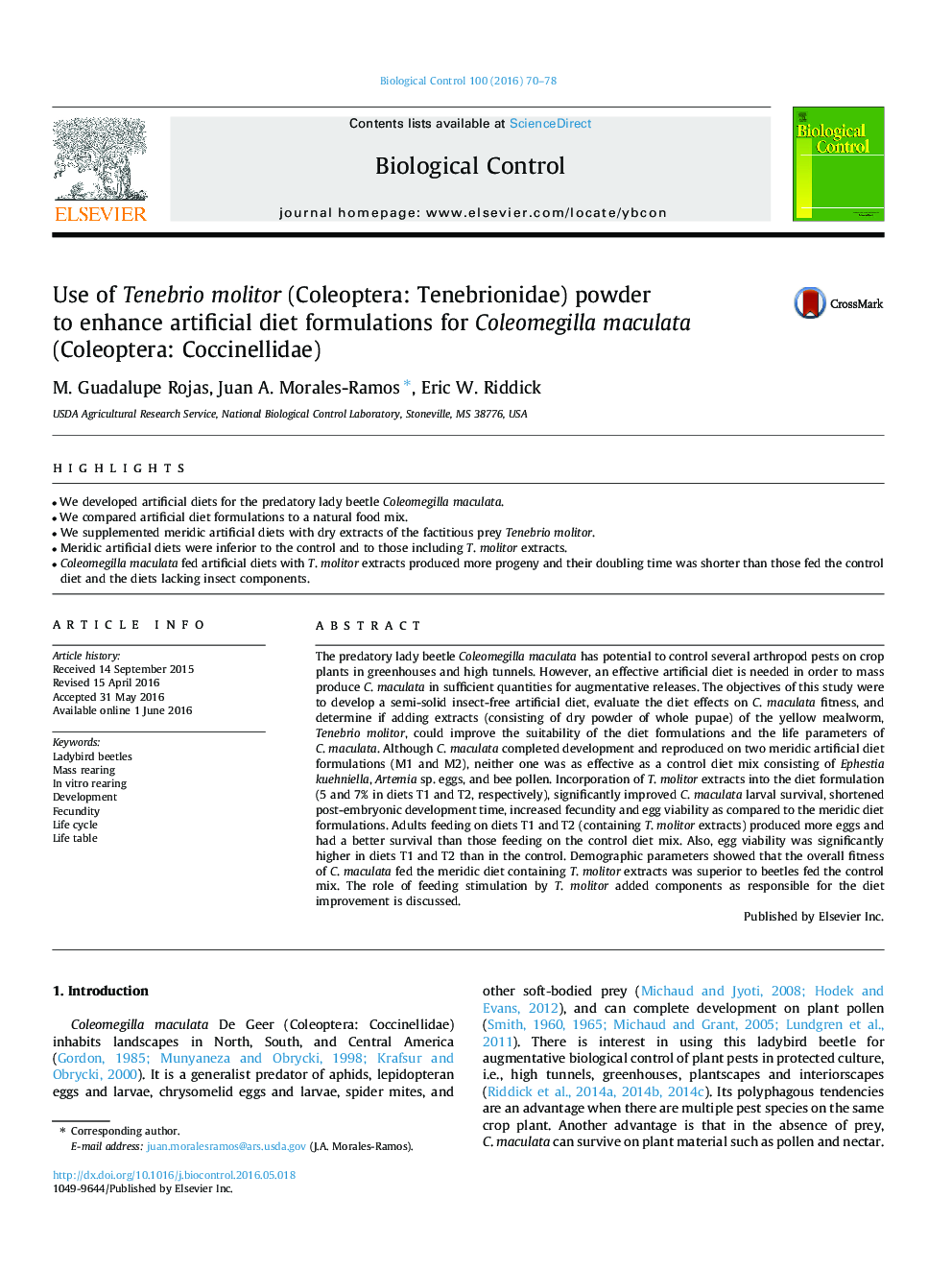| Article ID | Journal | Published Year | Pages | File Type |
|---|---|---|---|---|
| 4503589 | Biological Control | 2016 | 9 Pages |
•We developed artificial diets for the predatory lady beetle Coleomegilla maculata.•We compared artificial diet formulations to a natural food mix.•We supplemented meridic artificial diets with dry extracts of the factitious prey Tenebrio molitor.•Meridic artificial diets were inferior to the control and to those including T. molitor extracts.•Coleomegilla maculata fed artificial diets with T. molitor extracts produced more progeny and their doubling time was shorter than those fed the control diet and the diets lacking insect components.
The predatory lady beetle Coleomegilla maculata has potential to control several arthropod pests on crop plants in greenhouses and high tunnels. However, an effective artificial diet is needed in order to mass produce C. maculata in sufficient quantities for augmentative releases. The objectives of this study were to develop a semi-solid insect-free artificial diet, evaluate the diet effects on C. maculata fitness, and determine if adding extracts (consisting of dry powder of whole pupae) of the yellow mealworm, Tenebrio molitor, could improve the suitability of the diet formulations and the life parameters of C. maculata. Although C. maculata completed development and reproduced on two meridic artificial diet formulations (M1 and M2), neither one was as effective as a control diet mix consisting of Ephestia kuehniella, Artemia sp. eggs, and bee pollen. Incorporation of T. molitor extracts into the diet formulation (5 and 7% in diets T1 and T2, respectively), significantly improved C. maculata larval survival, shortened post-embryonic development time, increased fecundity and egg viability as compared to the meridic diet formulations. Adults feeding on diets T1 and T2 (containing T. molitor extracts) produced more eggs and had a better survival than those feeding on the control diet mix. Also, egg viability was significantly higher in diets T1 and T2 than in the control. Demographic parameters showed that the overall fitness of C. maculata fed the meridic diet containing T. molitor extracts was superior to beetles fed the control mix. The role of feeding stimulation by T. molitor added components as responsible for the diet improvement is discussed.
